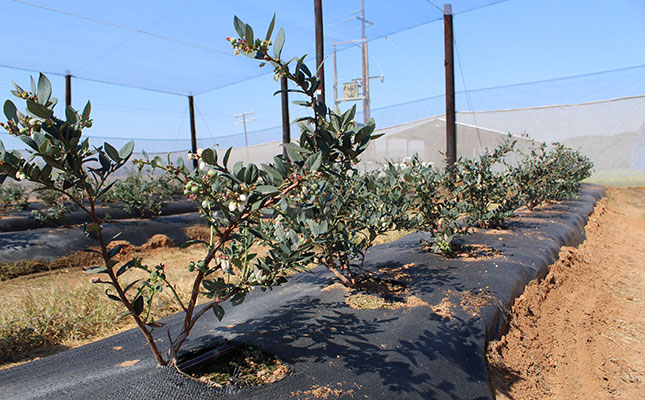
Photo: FW Archive
South Africa is expecting a bumper blueberry harvest this season, but difficulties with air freighting are posing a challenge for exporters.
According to Elzette Schutte, operational manager of BerriesZA, a blueberry crop of 23 000t was expected in the 2020/2021 production year, up from 18 000t in 2019/2020.
Roughly 75% of the current season’s crop would be exported to various international markets, said Schutte.
She explained that this record harvest could be attributed to additional hectares that were coming into production, as well as to existing plantings that consisted of older plants, which could bear larger yields.
Harvesting of blueberries in the Western Cape had just started.
“We have therefore, to some extent, missed the worst impact of the COVID-19 [pandemic], especially with regard to capacity issues encountered at the Cape Town harbour,” Schutte said.
However, she pointed out that blueberry exports were being disrupted due to limited air freight availability, as well as high air freighting rates.
“We are finding that international flights are up to three times more expensive than they were in the past. In addition, there are also no international flights from Cape Town. So, we have to [transport] the fruit all the way to Johannesburg at an additional cost.”
According to Schalk Bruwer, CEO of Morgan Cargo, since the country’s borders were closed for tourism, the only flights operating in and out of South Africa were cargo planes, passenger planes only carrying cargo, and repatriation flights.
“Of these three types of flights, only occasional repatriation flights operate in and out of Cape Town. The other flights operate only from Johannesburg.”
He explained that the demand for the importing of goods was highest in Johannesburg, which determined that most international flights operated between Johannesburg and the various import markets.
According to Schutte, 46% of South African blueberry exports went to the UK, with the same volume going to the EU, and the remainder to the Middle East and Far East.
She expected that there would be more blueberries available on the local market this year due to the larger crop, but did not expect the local price for blueberries to decrease.
However, Schutte told Farmer’s Weekly that blueberry prices would definitely decrease over time. “It’s only logical that as your supply increases, prices will come under pressure.”











